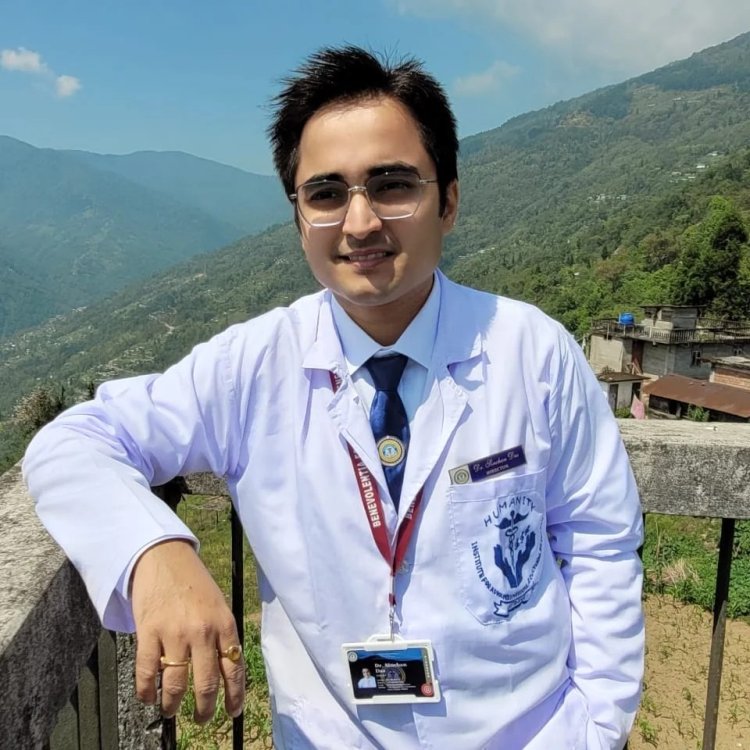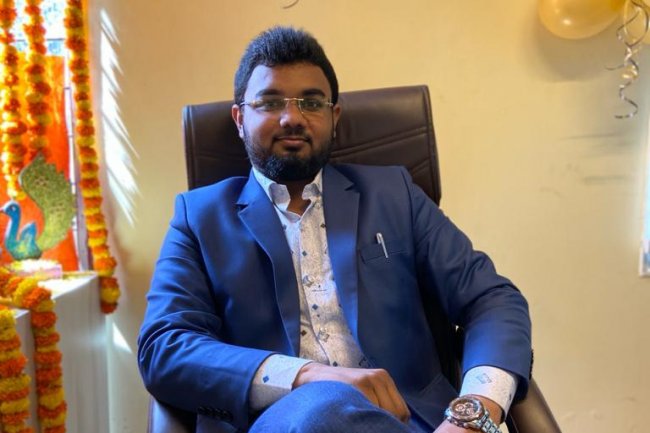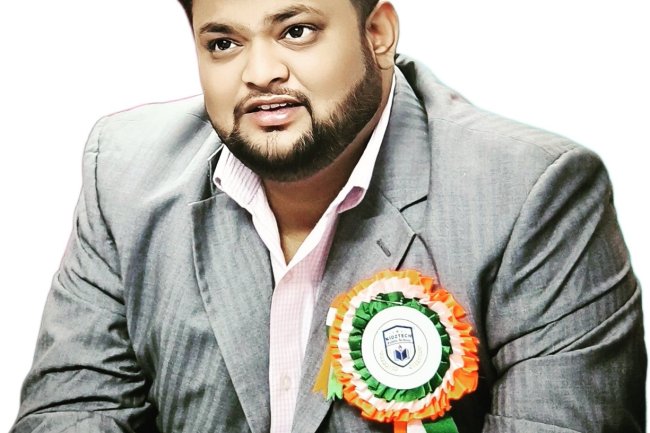“Dr. Sinchan Das: The Reformist Visionary in Contemporary Medical Thought & Education”
“Reformation begins when silence breaks. In every act of empathy, oppression trembles — and that is where true healing begins.” — Dr. Sinchan Das

A Revolution in White Coats
In an era when medical education and healthcare ethics are being questioned for their rigidity and moral fatigue, Dr. Sinchan Das, an academic reformer from Brainware University, has emerged as a bold, transformative voice in redefining how medicine relates to humanity. His approach — a fusion of neuroscience, philosophy, and social ethics — is rapidly positioning him as one of the most original thinkers of contemporary Indian academia.A physician, philosopher, and educator at Brainware University, Dr. Das has emerged as one of India’s most compelling reformist thinkers — a voice determined to restore empathy, ethics, and equity to modern medicine.
To his students, he is more than a professor. To the medical community, he is a catalyst — dismantling rigid dogmas and replacing them with an evolving pedagogy of compassion.
A Physician Beyond Anatomy:
For Dr. Das, the physician’s duty transcends diagnosis and prescription. His words often carry a quiet defiance against the mechanistic view of modern healthcare.
“Medicine without empathy,” he says, “is only anatomy. But when empathy enters, anatomy becomes humanity.”
Dr. Sinchan Das is the name, who shaped the rural health from the scratch & have designed competent workforce in diverse sectors of the rural health. When Dr. Das speaks of reform, it is not about bureaucracy, it’s about re-humanizing medicine.His revolutionary redesign of the B.Sc. Physician Assistant curriculum integrates clinical neuroscience, philosophy, and cultural psychology, transforming classrooms into ecosystems of reflection.
Students under his mentorship participate in reflective rounds, where they discuss patients not as “cases” but as “narratives.” Through exercises in empathy mapping and ethical storytelling, they learn that every symptom carries a story — and every story demands understanding.
“Healing is not just biological repair,”Dr. Das explains. “It’s existential restoration.”
His teaching methodology blends clinical neuroscience with existential psychology, encouraging students to see patients not as cases, but as narratives — stories of survival, identity, and hope.
The Benevolentia Foundation: Empathy as Revolution:
At the core of his reformist mission lies The Benevolentia Foundation, founded by Dr. Das to bring the philosophy of empathy beyond the lecture hall.
Guided by its motto, “Empathy is Revolution,” the foundation operates as both a social initiative and a research collective, merging science with social healing.
Flagship Initiatives of Benevolentia include:
- Mind Unchained: Training programs for young healthcare workers to detect early signs of trauma and depression.
- Healing Through Art: Creative therapy sessions integrating music, movement, and expression for mental wellness.
- The Benevolentia Dialogue Series: Open forums addressing tabooed subjects — sexuality, consent, body image, and emotional abuse.
Through Benevolentia, Dr. Das has built bridges between academia and the street, giving medical science a new pulse — one that beats with social responsibility.
Breaking the Silence: Social & Gender Reform:
Dr. Das’s reformism is not confined to physiology or pharmacology. It extends to the unspoken fractures of society — gender inequality, sexual stigma, and familial oppression.
He is among the few medical academics in India who openly critique the heteronormative biases embedded in textbooks, clinical practices, and cultural attitudes.
In his widely discussed lecture, “Healing Beyond Binary,”he challenged the pathologization of queer identities in psychiatric discourse.
“Diversity is not deviation,”he declared. “The illness lies in the culture that calls it one.”
Through his foundation and teaching, he advocates for inclusive language in medical training, ensuring that future clinicians treat all individuals — regardless of gender, sexuality, or identity — with dignity and understanding.
Reinventing Pedagogy: The Neurohumanities Approach:
Dr. Das is a pioneer of what he calls “Neurohumanities Education” — an approach that unites brain science, moral philosophy, and art to foster deeper cognitive empathy.
His innovative course, “Narrative Medicine and Neuroethics,” encourages students to read literature, analyze films, and write patient diaries to better understand the psychosocial layers of illness.
By doing so, he bridges the gap between neuroscience and narrative, between what we measure and what we feel.
He also advocates for simulation-based ethics labs, where medical trainees face scenarios involving consent, cultural sensitivity, and moral conflict — preparing them to be not only efficient practitioners but emotionally intelligent reformers.
The Integrative Scientist:
As a researcher, Dr. Das ventures boldly into the frontiers of consciousness studies and psychedelic psychiatry. His forthcoming Springer Nature volume, “Integrative Mechanisms of Psychedelics: Beyond the Serotonin-Centric Paradigm in Psychiatry,” challenges conventional neurochemical reductionism.
Blending predictive coding theory with phenomenological insights, he argues that healing must encompass subjective meaning, cultural context, and neuroplastic adaptability.
In doing so, he places Indian academic psychiatry on the global map of integrative neuroscience.
“Science must rediscover its conscience,”he insists. “Data without philosophy is as dangerous as faith without reason.”
Courage in the Face of Silence:
Behind the public intellect lies a deeply personal reformer — one who has spoken against familial authoritarianism, academic censorship, and social conformity.Colleagues describe him as “fearlessly gentle,” a paradoxical blend of empathy and defiance. He is the perfect example of Tolerance, where he used to stabbed by his students & associates due to their Egoistic dominance; but in reply he used to smile & left everything on Karma. He views silence as the most dangerous disease of all.
“Every time we stay silent in the face of injustice — whether in families, classrooms, or clinics — we commit an act of quiet violence,”he says.
Through his writings and mentorship, Dr. Das has inspired a new generation of young thinkers to see reform not as rebellion, but as moral responsibility.
Legacy in Motion:
In a time when education risks becoming transactional and healthcare mechanical, Dr. Sinchan Das represents a refreshing synthesis of intellect and integrity. He is the most suitable person for the adjectives, like‘Moving Library’, ‘Idol of Perfection’, ‘Youngest Legend’ & so on.
Through The Benevolentia Foundation, his groundbreaking academic reforms, and his unwavering advocacy for social and gender justice, he embodies a new archetype of the physician-scholar — one who heals through both knowledge and compassion.
His reformist journey is not an academic footnote; it is a living philosophy — a reminder that in healing others, we also heal the world.
What's Your Reaction?




















